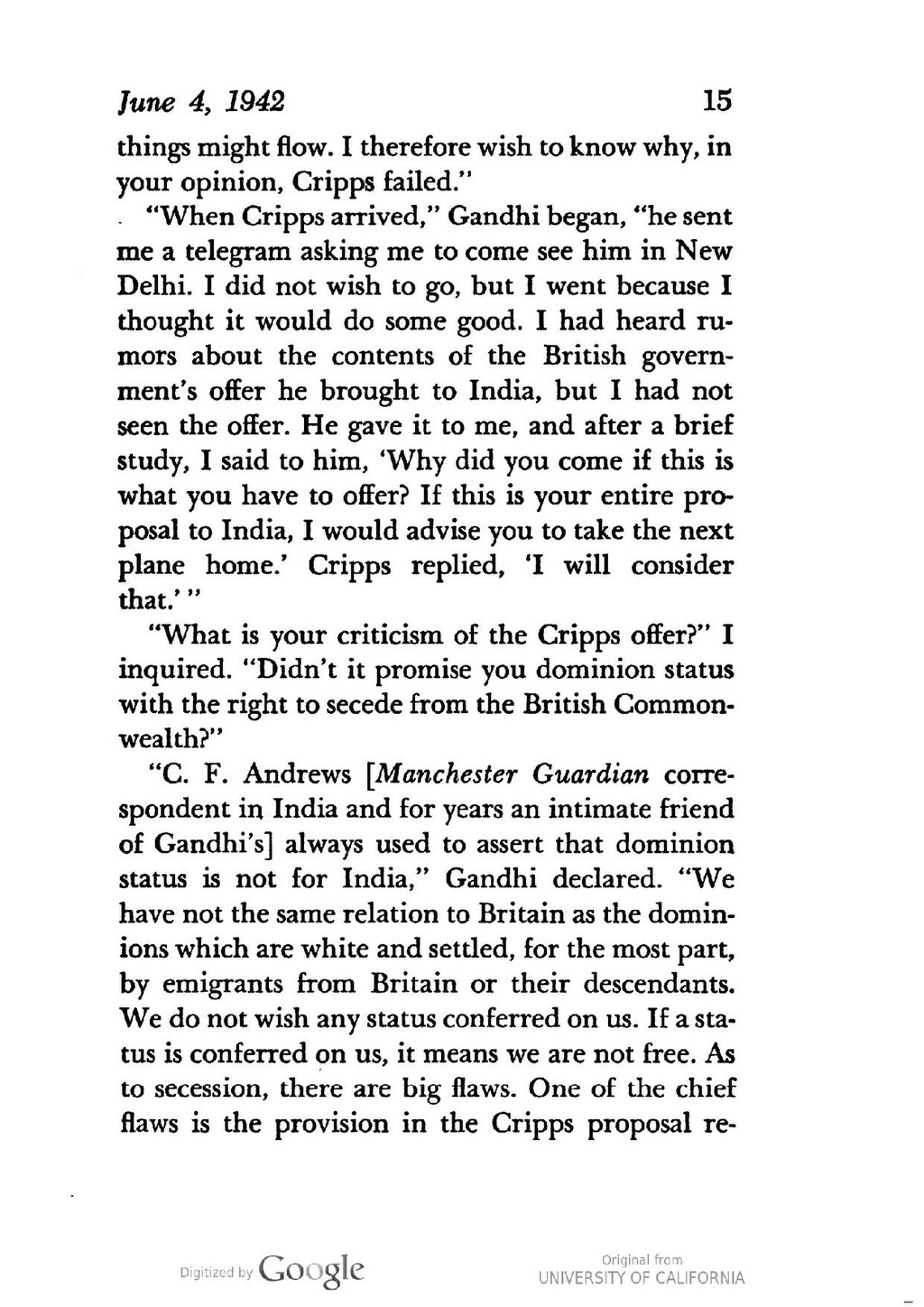things might flow. I therefore wish to know why, in your opinion, Cripps failed.”
“When Cripps arrived,” Gandhi began, “he sent me a telegram asking me to come see him in New Delhi. I did not wish to go, but I went because I thought it would do some good. I had heard rumors about the contents of the British government’s offer he brought to India, but I had not seen the offer. He gave it to me, and after a brief study, I said to him, ‘Why did you come if this is what you have to offer? If this is your entire proposal to India, I would advise you to take the next plane home.’ Cripps replied, ‘I will consider that.’”
“What is your criticism of the Cripps offer?” I inquired. “Didn’t it promise you dominion status with the right to secede from the British Commonwealth?”
“C. F. Andrews [Manchester Guardian correspondent in India and for years an intimate friend of Gandhi’s] always used to assert that dominion status is not for India,” Gandhi declared. “We have not the same relation to Britain as the dominions which are white and settled, for the most part, by emigrants from Britain or their descendants. We do not wish any status conferred on us. If a status is conferred on us, it means we are not free. As to secession, there are big flaws. One of the chief flaws is the provision in the Cripps proposal re-
